Is finding common ground possible in today's political climate? Naming panel says 'yes'
Is the animosity between Democrats and Republicans based on difference in ideology or is it rooted in an us-versus-them mentality?
Admiral Michelle Howard argued the latter, claiming political division can be healed through civil discourse.
She pointed to the Congressional Naming Commission as proof.
Five members of the commission gathered at Hamilton College on Feb. 7 to discuss the bipartisan approach they used to accomplish their assignment – to remove, modify, or replace all the Department of Defense assets that commemorate the Confederacy – and how they navigated obstacles along the way.
The discussion was part of the school’s Common Ground Program, designed to explore cross-boundary political thought and complex social issues.
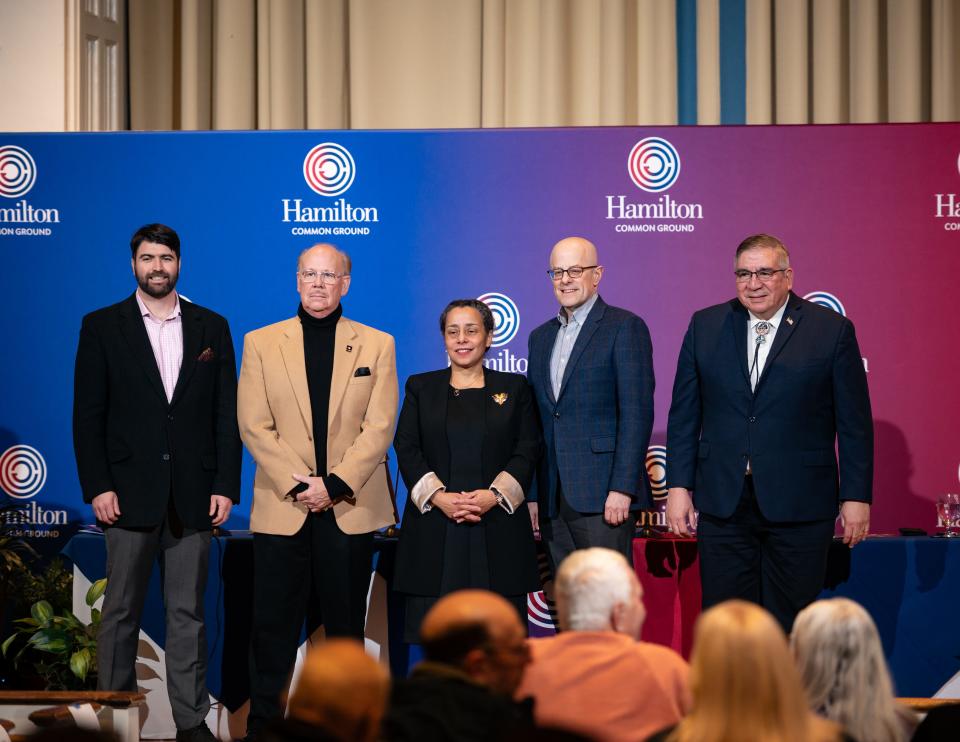
Finding common ground
The Naming Commission was formed in 2021 and mandated to complete its work within three years. Members found more than 1,100 Confederate assets to be addressed, including nine U.S. Army bases, all of which were renamed by the end of 2023.
In the wake of George Floyd, near the end of the Trump presidency, the formation of the Commission drew both praise and criticism from the public.
Their process required diplomacy, bipartisan collaboration and consultation of various constituencies to develop their recommendations and garner support from affected communities.
“As one can imagine this was an incredibly difficult and sensitive assignment,” said Hamilton College President David Wippman. “The story of how the commission accomplished its work, and rallied support, is something our country can learn a great deal from.”
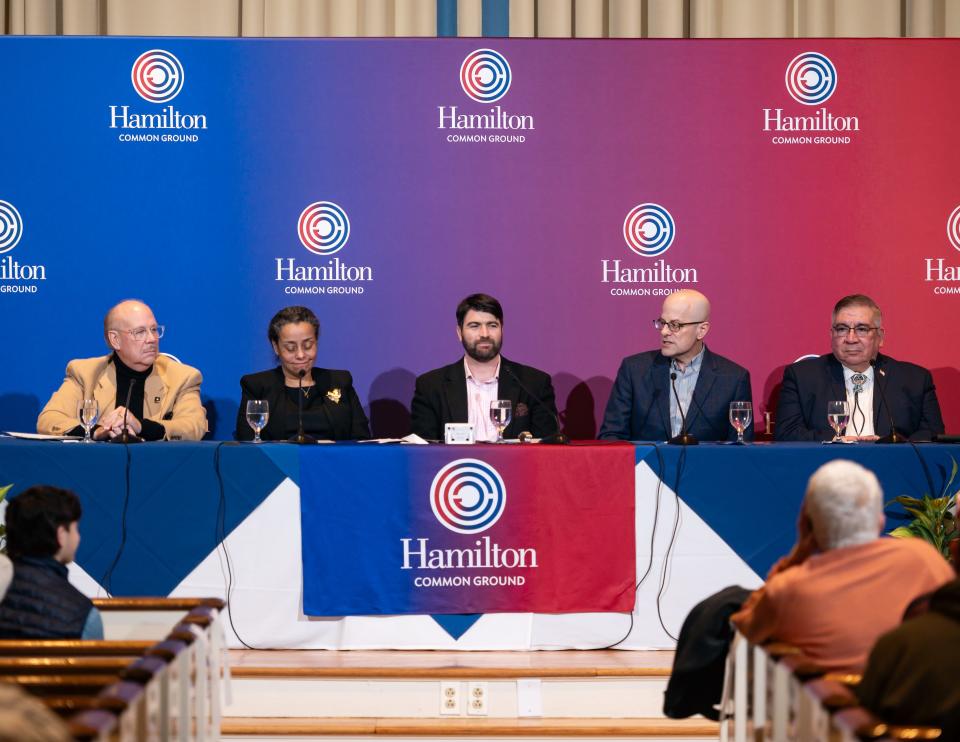
About the panel
Each of the four retired veterans on the panel – Admiral Michelle Howard, Brigadier General Ty Seidule, Lawrence Guzman Romo, and Jerry Buchanan – imparted knowledge from time served in the Navy, Army, and Air Force, respectively.
They claimed that their military background influenced the bi-partisan structure of the commission.
Moderator, Connor Williams, served as lead historian for the commission, directing research, engaging stakeholders, and directing the writing of the final reports for Congress.
He began with questions for each individual commissioner then moved onto topics open to discussion.
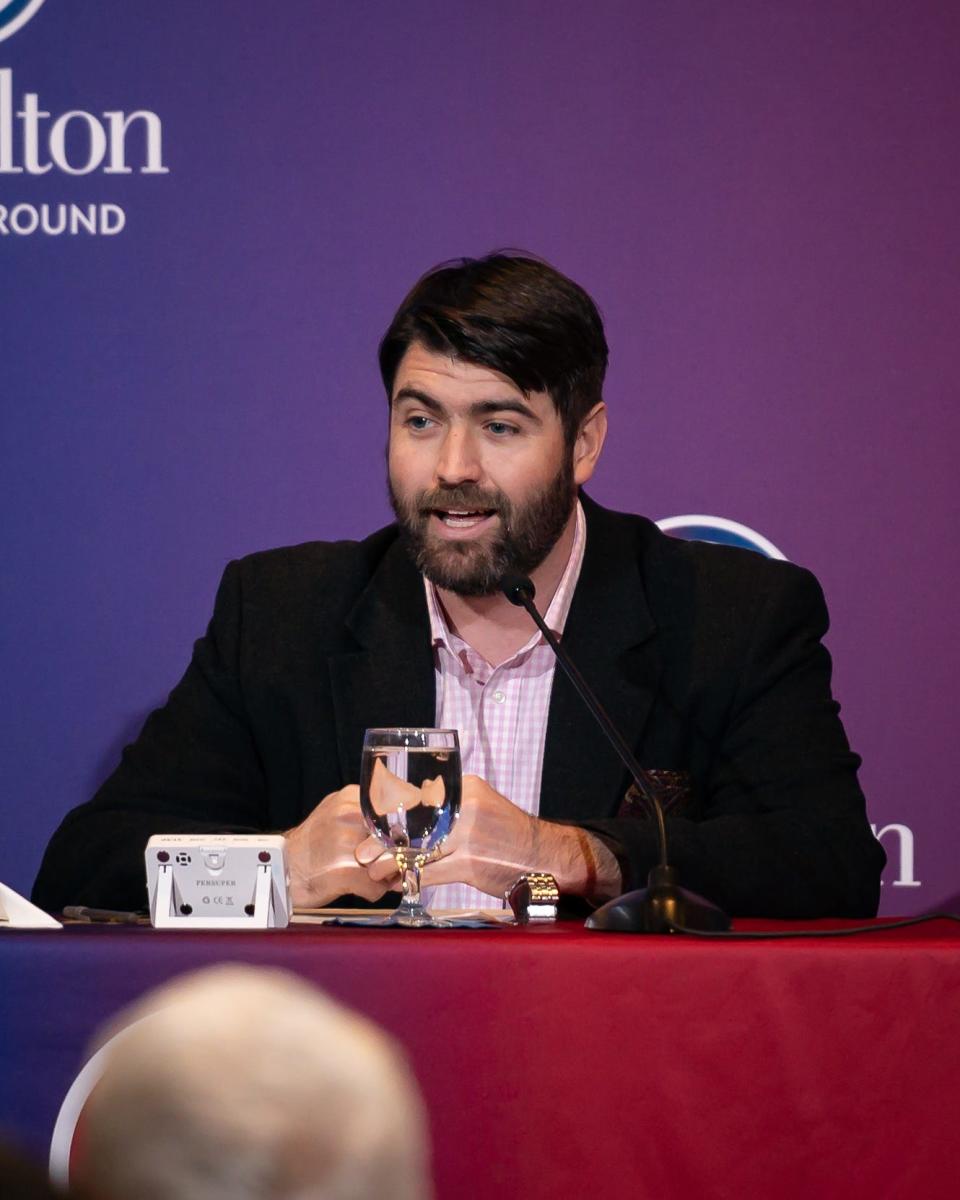
Change and continuity
The story of the commission is one of change and continuity, said Williams.
“While the changes are now evident a few years ago they were far from inevitable,” he admitted.
In 2015, after the Charleston Church Massacre, Confederate merchandise was pulled from store shelves and removed from online databases.
“Yet, the military still insisted on maintaining its Confederate honors,” said Williams.
In 2021, Congress added section 320 to the National Defense Authorization Act (NDAA), allotting the commission $2 million to fund their work of removing Confederate symbols nationwide.
According to Williams they finished on time and under budget, returning $1.7 million back to American taxpayers.
“While the continuity is less evident it informs the heart of this panel,” Williams said. “I would argue that the support this commission received was a direct result of how they went about their work.”
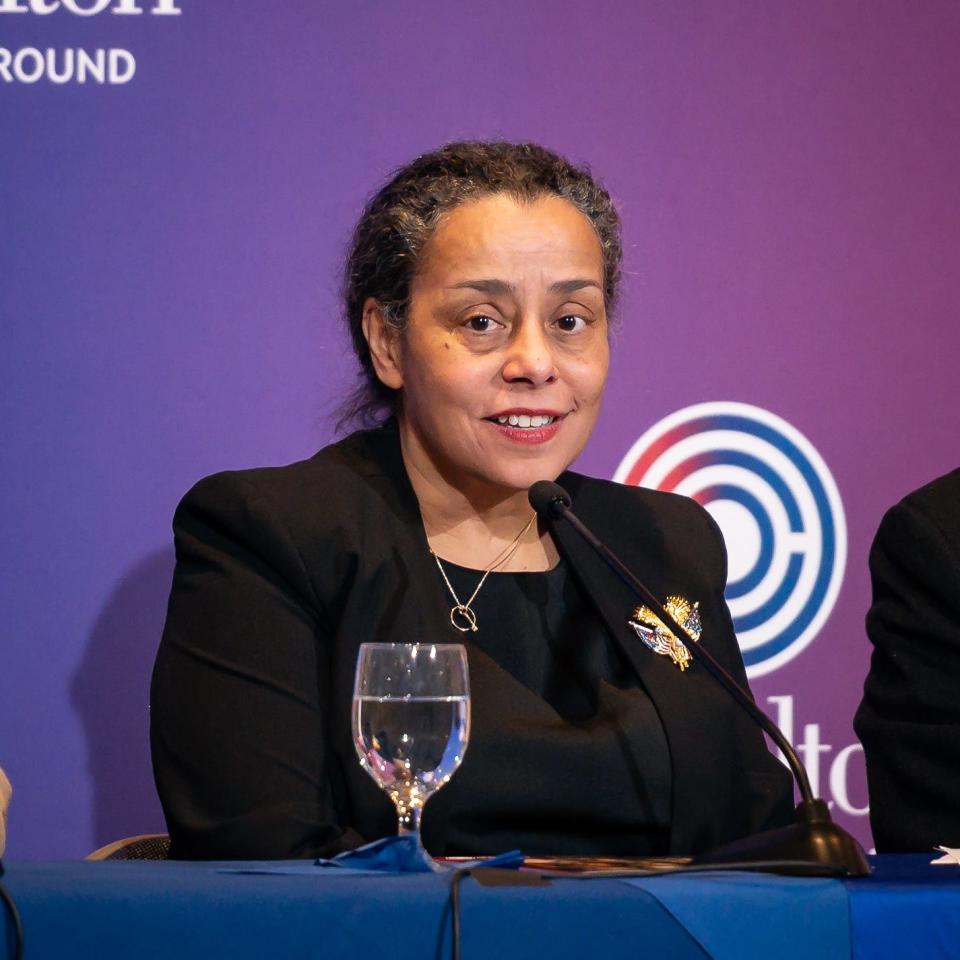
A bi-partisan framework
To start the discussion Williams asked what actions were taken to get the ball rolling.
Howard recalled the first meeting was productive in deciding two things: to exclude media from the first round of public forums, so locals felt comfortable to express their opinions freely and to organize bi-partisan representation.
After meeting with residents, the commissioners spoke with members of the Department of Transportation (DOT) and the local chamber of commerce to address concerns regarding the expense of the transition.
Buchanan said he felt the boots on the ground approach was effective.
“When you rename a fort it forces local businesses to adjust too – not to mention street signs and road maps,” he added.
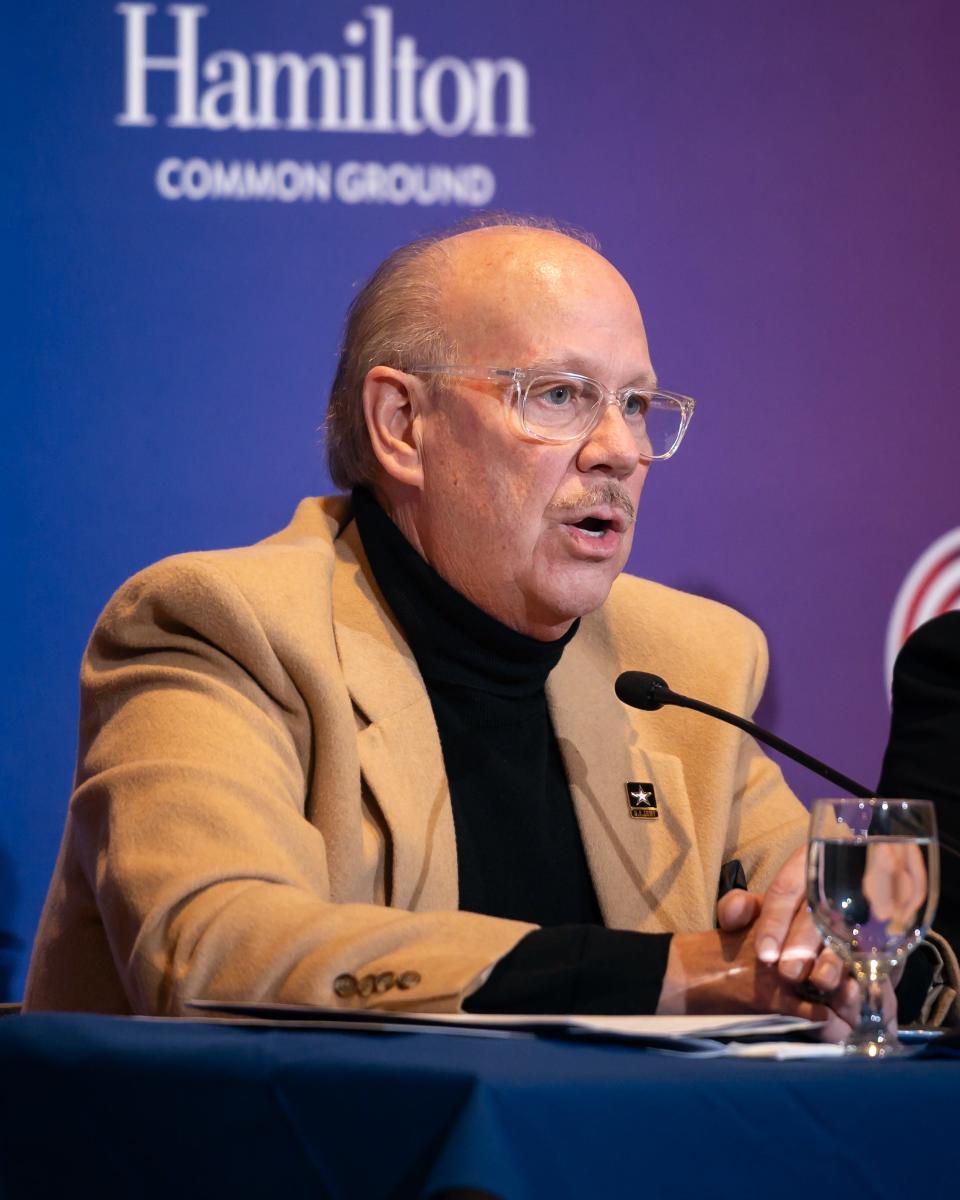
Civil discourse
The renamed forts were concentrated in the southeast – Virginia, Georgia, North Carolina, Texas, Louisiana, and Alabama.
That being said, Williams asked the panel about the communication strategy they used when dealing with conservative backlash.
Howard said she leaned on honesty to steer her through hard conversations.
“Good policy is grounded in truth," she said. "I decided we needed to prioritize our three customers. Our first being our boss, Congress. Our second being the communities themselves. And our third being the commission… our shared conscience. We had to be transparent with ourselves and others, which can only be done through honest conversation.”
Romo confessed how keeping an open mind led the commission to great success. After identifying as a Democrat he pointed out considers many Republicans his friend, including fellow commissioner Buchanan.
“When things got heated we found our way back to common ground through dialogue and compromise ” he explained.
Buchanan agreed that while his conservative counterparts weren’t thrilled about the transition they were malleable.
“My goal was to make the transition for them as smooth as possible," Buchanan said. "My convincing argument was simply asking the important question: Why are we still honoring Confederates who killed American soldiers? That was a reality we had to confront.”
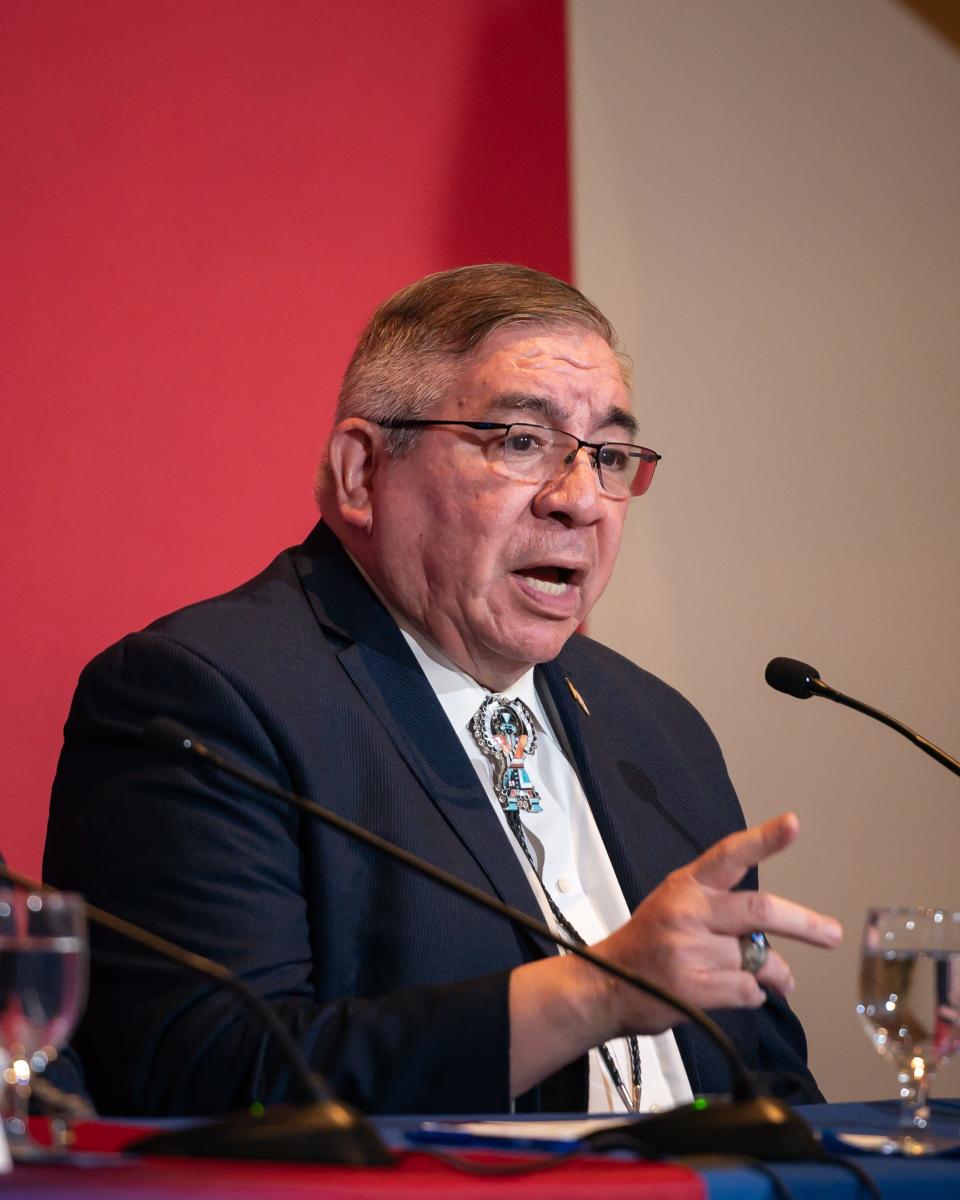
Reaching across the table
A member from the audience asked if panelists could explain how they maneuvered the tense moments that arose.
Buchanan was quick to mention two men on the Infrastructure Planning Committee. One was conservative, the other liberal, and they would fight each other tooth-and-nail each day but once five o’clock rolled around they were back to being friends, he said.
“Sure, they had a difference in opinion,” avowed Buchanan. “But, for the betterment of the group they’d always make the effort to reach across the table and come to some sort of resolution. Congress could learn a thing or two from them.”
As appointed chair, Howard was held responsible for the sustained progress of the commission. In terms of leadership, she found the best tactic to be continued discourse.
“If it was clear the group was far from coming to a resolution I’d withhold the opportunity to vote and keep the dialogue going," she said. "If we weren’t ready to make a decision we’d put a pause in the conversation and continue the discussion during the next meeting.”
What we commemorate reflects our values
Williams also asked the commissioners how they ensured a diverse group of people made it into the final report?
Romo pointed to the three renamed forts in Virginia as an example.
Fort A.P. Hill was renamed Fort Walker after Dr. Mary Edwards Walker — the first woman surgeon in the Civil War, and the only woman awarded the Medal of Honor.
Fort Lee became Fort Gregg-Adams. Army Lt. Gen. Arthur J. Gregg was an African-American soldier who rose from private to three-star during a career in military logistics whereas Army Lt. Col. Charity Adams was the first African American officer in the Women's Army Auxiliary Corps in World War II.
Fort Pickett was renamed Fort Barfoot to honor Army Tech Sgt. Van T. Barfoot, who received the Medal of Honor for his actions with the 45th Infantry Division in Italy in 1944.
“We’ve always had a diverse military but now we can spotlight that,” said Romo “For the first time we now have three bases in Virginia that honor American heroes across rank, sex, race, and creed.”
Romo added how changing commemorative paraphernalia does not equate to changing history.
“What we honor reflects our values and as our country’s ideals change so does what inspires us– that’s a good sign.”
Howard agreed. She said the goal of the commission was never to diversify commemorative efforts, although it appears that way.
"These names represent a group of people whose characteristics are incidental to their greatness,” she said.
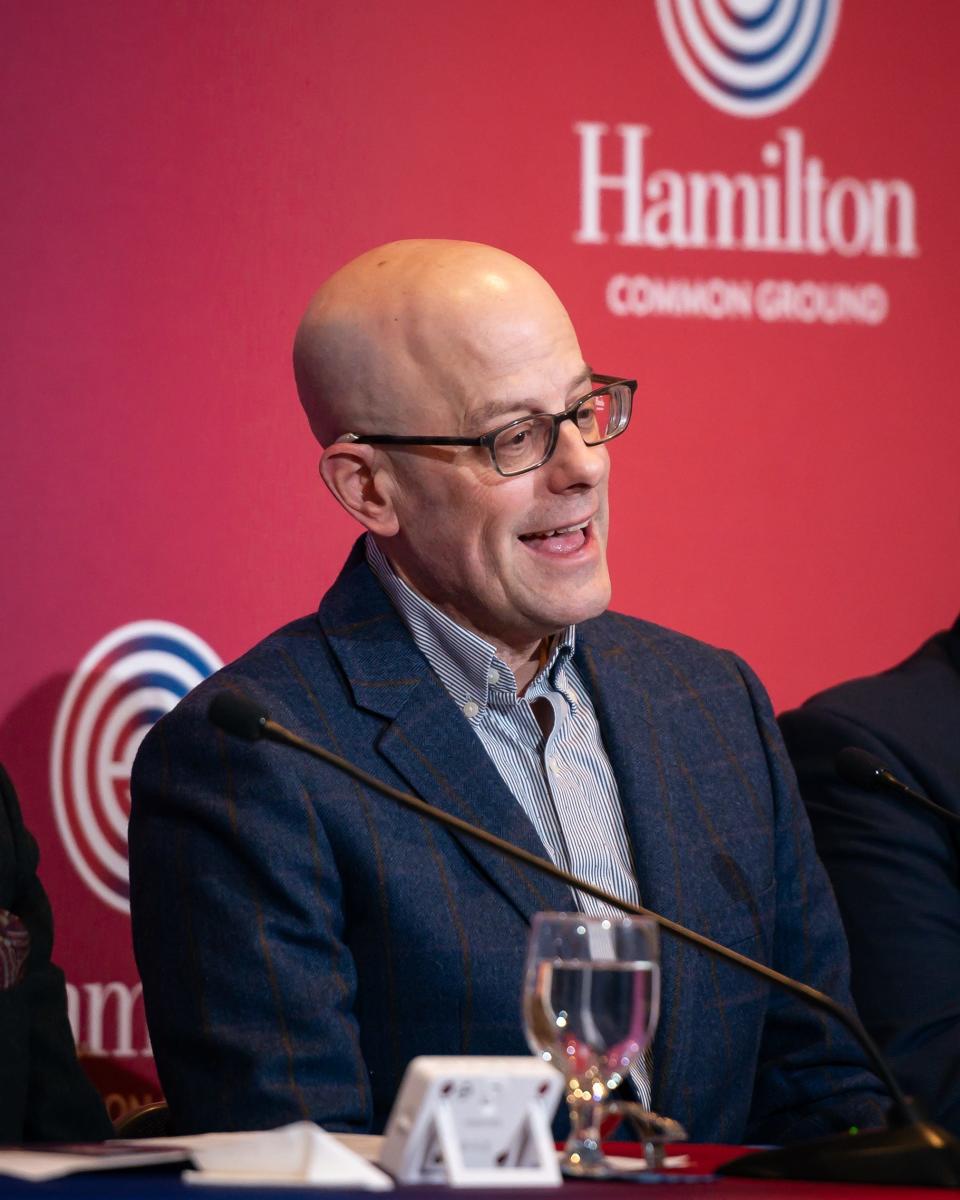
What's next?
To conclude the event the panel was asked what’s next? The unanimous answer: continuing to seek common ground.
Romo said the us-versus-them mentality has to fall to the wayside in order for our country to unite. Buchanan concurred adding that , “it’s the diversification of opinion that makes us stronger as it gives us the chance to understand several perspectives.”
Seidule mentioned the novel he published in 2022, Robert E. Lee and Me. The plot challenges the myths and lies of the Confederate legacy— it explores why some of this country’s oldest wounds have never healed, he said.
Though the commission has since enacted changes that addressed several of Siedule's earlier concerns he declared his work is far from done.
“Because of state laws local communities still aren't to remove commemorative monuments themselves,” said Seidule. “This is our next step, addressing the way we distribute power and where we stifle change.”
This article originally appeared on Observer-Dispatch: Congressional Naming Commission seeks common ground politically

